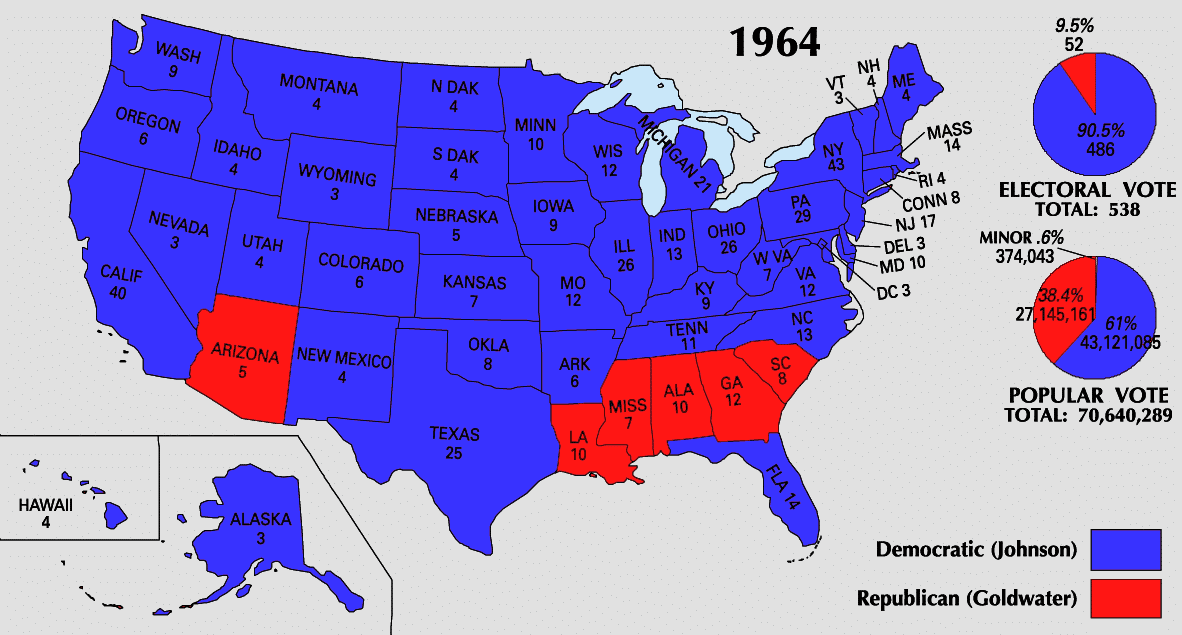The Presidential Election of 1964 began with a terrible tragedy.

John F. Kennedy was a popular and charismatic leader who directed the country through the Cuban Missile Crisis and the Cold War. Despite his age, the foreign leadership respected his resolve, and domestically, he was popular in the media.
On his first stop during his bid for re-election, he was assassinated.
This caused America to go into a time of political confusion as the nation mourned, and the opposition did not want to appear disrespectful by opposing his policies.
The Democrats would replace John F. Kennedy with his Vice President Lyndon Johnson, who assumed the presidency after Kennedy's death.
The candidates were as follows:
- Republicans: Barry Goldwater and Vice President William Miller
- Democrats: Lyndon Johnson and Vice President Hubert Humphrey
Platforms
Republicans: The GOP was put in a tough position. Kennedy was a popular president, and his assassination meant that the issues would fall into the background while his memory would be strong in the upcoming election. There was a divide among conservative and moderate Republicans when it came to foreign policy and civil rights. While Nixon was able to unite the base in 1960, Goldwater struggled.
Democrats: The Democratic Party united behind Lyndon Johnson, and they ran on a similar platform that Kennedy had run on in the election of 1960. They wanted to continue Kennedy's legacy by continuing with the push for Civil Rights and continual improvement with the space program. Unknown to many was that Kennedy had begun to support South Vietnam. Johnson would increase that support, but it was not discussed during the campaign.
Outcome
To say Kennedy's assassination did not play a role in the election would be false. Obviously, the emotions were high, and it showed in the electoral college when Johnson dominated the election and won in a landslide.
However, it should be noted that Goldwater's inability to unite the base also caused an easy election for the Democratic candidate. His waffling on Civil Rights hurt the moderate wing of the party who supported Civil Rights.
The Johnson campaign broke two American election records previously held by Franklin Roosevelt: the most number of Electoral College votes won by a major-party candidate running for the White House for the first time (with 486 to the 472 won by Roosevelt in 1932) and the largest share of the popular vote under the current Democratic/Republican competition (Roosevelt won 60.8% nationwide, Johnson 61.1%). This first-time electoral count was exceeded when Ronald Reagan won 489 votes in 1980. Johnson retains the highest percentage of the popular vote as of the 2016 election.
